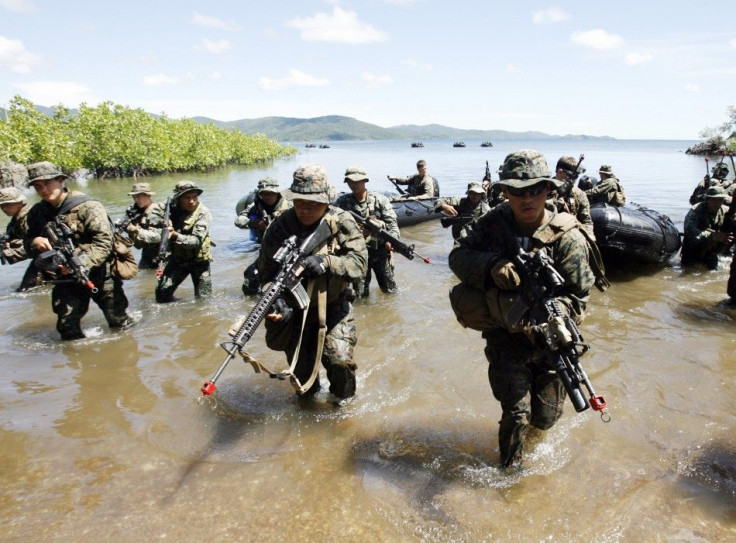Chinese Warship Heads Home Averting Standoff With Philippines In South China Sea

A Chinese warship, which ran aground in disputed waters close to the Philippine coast while on a security patrol, extricated itself Sunday and was heading home, averting fears of another maritime standoff between Beijing and Manila in the South China Sea.
The frigate, which got stuck Wednesday night on Half Moon Shoal, about 170 kilometers off the western Philippine province of Palawan, would sail back to the Chinese port, spokesman for Chinese Embassy in Philippines Zhang Hua said in a statement, according to the Associated Press.
The South China Sea is a focal point in the diplomatic relations between the nations in the Asia Pacific and has been at the heart of territorial tensions between nations which claim overlapping parts of the resource-rich region.
At about 5 a.m. on July 15, the frigate which had run aground in waters near Half Moon Shoal successfully extricated itself with the help of a rescue team, China's defence ministry said in a statement, Reuters reported.
The bow has sustained light damage and everybody on board is safe. Its return to port is being organised. The incident caused no maritime pollution, the statement added.
Manila had sent two of its navy vessels and a reconnaissance aircraft to the area after the Chinese ships had been spotted near its coast.
As of Saturday night, the Chinese ships are still there and, as of today, we don't have any information if they were able to remove the ship there, Commodore Rustom Pena, commander of naval forces in western Philippines, said.
Manila says Half Moon Shoal is located within its exclusive economic zone, as recognized by international conventions.
The shoal, called Hasa Hasa by the Philippines and claimed by China as part of the Nansha island chain and known internationally as the Spratlys, is also claimed by Taiwan, Malaysia, Vietnam and Brunei.
At the just concluded summit, the Association of Southeast Asian Nations, or ASEAN, failed to reach a common ground over the territorial tensions in the South China Sea, resulting from the disagreement among the member nations, which member Indonesia slammed as utterly irresponsible.
Foreign ministers from the 10-member nations deliberated all week to finalize its position on the maritime tensions in the South China Sea. But they emerged from the ASEAN Regional Forum, or ARF, Thursday in the Cambodian capital Phnom Penh without reaching an agreement because the Philippines and Vietnam, along with Brunei and Malaysia, claim overlying parts of the South China Sea.
China, on the other hand, lays claim to almost the entire South China Sea, including what is recognized by the U.N. as the Exclusive Economic Zone of other neighbors.
The Philippines, which was involved in a dispute with China recently over the ownership of the Scarborough Shoal, has been seeking ASEAN's support in pressuring Beijing to accept the code of conduct.
While addressing the ARF, Philippine Foreign Minister Albert del Rosario said China's behavior in the region accounted to gross violations of international conventions and was part and parcel of [China's] creeping imposition of its claim over the entire South China Sea.
© Copyright IBTimes 2024. All rights reserved.






















